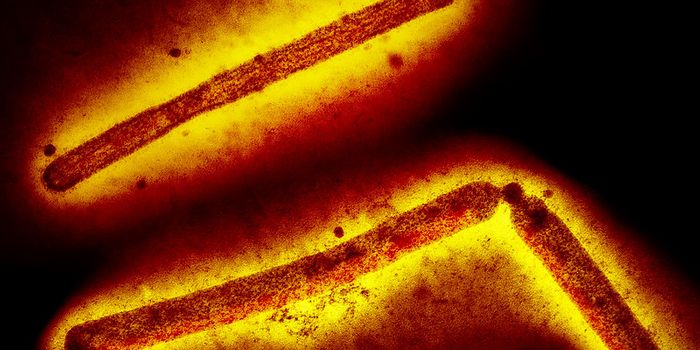Can This 'Functional Bread' Prevent Asthma?
Asthma is a very common respiratory disorder that can be life-threatening in extreme cases. Scientists have now developed a bread that contains a very specific type of brewer's yeast that aims to prevent the development of asthma. This strain of brewer's yeast, called Saccharomyces cerevisiae UFMG A-905, has been shown to have probiotic properties that were able to relieve the symptoms of asthma in a mouse model. Now, the researchers are aiming to test this bread in human clinical trials. Their efforts so far have been reported in Current Developments in Nutrition.
This bread was created by Brazilian researchers, who are hoping to reduce the burden of asthma in a Brazil, where an estimated 20 million people are affected by asthma.
Asthma is thought to be an inflammatory disorder, in which the airways become hyperresponsive to irritants, though the causes are not well understood. Environmental factors such as allergens, pollution, and smoke exposure, and diet are thought to play a role, and enough studies have linked gut microbes and asthma that scientists have proposed that there is a 'gut-lung axis.'
Previous research has also shown that probiotic microbes that are sometimes administered along with dairy products like yogurt and kefir can also benefit asthma patients. However, dairy is not an option for every patient.
In this study, the researchers developed and tested breads that each contained different types of yeast: one was made with commercially available yeast, another with S. cerevisiae UFMG A-905, and the final bread was made with S. cerevisiae UFMG A-905 along with microcapsules that contained live S. cerevisiae UFMG A-905.
"We added encapsulated live yeast in order to improve probiotic viability and activity at the high temperature reached during the baking process," explained senior study author Marcos de Carvalho Borges, a professor at the Ribeirão Preto Medical School (FMRP-USP). "Microcapsules protect bioactive and probiotic compounds, improving their stability, survival and bioavailability."
Mice that modeled asthma were then fed the bread over a 27-day period. The mice that consumed S. cerevisiae UFMG A-905 bread had reduced airway inflammation, and lower levels of asthma biomarkers: interleukins (IL) 5 and 13 (IL5 and IL13). Mice that consumed bread made with microencapsulated yeast showed reduced signs of airway hyperresponsiveness and lower levels of another asthma biomarker called IL17A. These findings have confirmed results from previous studies investigating these types of yeast.
Now, the researchers are hoping to test the effectiveness of the bread in a clinical trial.
"The product has significant potential," Borges said. "Bread is a natural food consumed by almost everyone including children. It's easily distributed and has a good half-life on the shelf."
Sources: FAPESP, Current Developments in Nutrition










